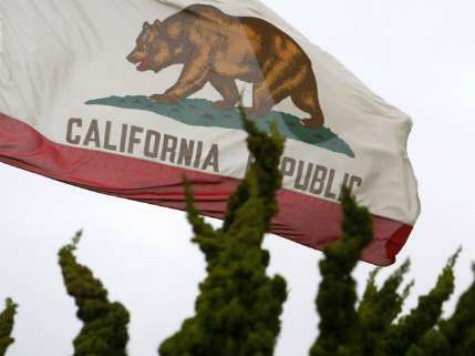California has become one of the most reliably “blue” states in the Union (the Democrats having convinced the rest of us, somehow, to assign to Republicans the “red” that used to mark both Democrats’ electoral victories on the map and their ideology). It now seems almost impossible for Republicans to win statewide elections, after California voters have rejected a slew of highly qualified men (and especially women) in recent years.
And yet a recent Field Poll indicates that a large majority of California voters–by a near-20-point margin–“say they prefer lower taxes and fewer government services to higher taxes and more government services.” In another recent survey, conducted in March by the Public Policy Institute of California (PPIC), a record-high 60% of Californians said that they pay “much more” or “somewhat more” in taxes than they ought to pay.
Certainly there would seem to be a low-tax, small-government constituency for Republicans to harness. However, the GOP may be hampered in California by its conservative positions on social issues. The PPIC survey also showed that large majority of Californians favor Democratic positions: 69% say that government should not restrict abortion, 55% want more environmental restrictions, and 56% want more gun control. A slim plurality, 49% to 47%, supports the full legalization of marijuana, a step taken recently by other states.
That could suggest that California is ripe for a Libertarian, not a Republican, revival as the engine of political opposition and, perhaps, government reform. The warm reception that Sen. Rand Paul (R-KY) received last month at UC Berkeley suggests a growing receptivity to his ideas of small government and individual freedom.
However, the state’s electorate does not seem to share Paul’s worldview, aside from shared opposition to some federal government policies, such as drug enforcement or electronic surveillance. For example, while Californians say they are taxed too much, they tend to believe the solution is to tax the state’s corporations and wealthy earners more, according to the PPIC, even though the state just raised taxes by referendum in 2012.
There is also little enthusiasm for government interventions that might actually make a difference in addressing some of the state’s most pressing problems. Another recent Field Poll showed that despite growing public worry about the state’s drought, California voters would rather see water managed through conservation than through building new dams and reservoirs. And many are convinced that farmers should–or could–change their crops.
That suggests Californians are somewhat poorly informed about some of the issues facing the state–and that is no accident, given the constant propaganda of special interests and left-wing culture brokers. In Los Angeles, for example, the city council seems to believe a pseudo-scientific theory that fracking causes local earthquakes.
That points to the need for alternative media, which is where Breitbart News comes in. However, the state also needs viable leadership, which is more than a news organization can provide.
Gov. Jerry Brown is seen as the only person who can manage the state while restraining its radical legislature. Yet he seems incapable of planning for the future, beyond support for a dubious high-speed rail program. In despair, those behind the “Six Californias” proposal argue that the state is ungovernable.
Regardless, California remains a political puzzle.

COMMENTS
Please let us know if you're having issues with commenting.